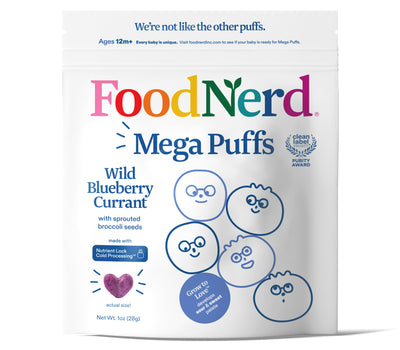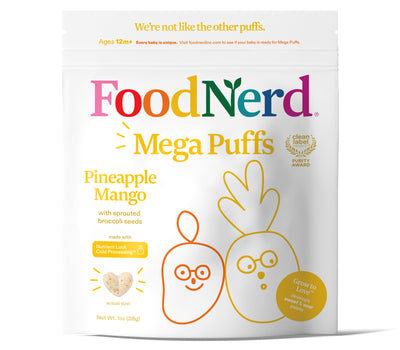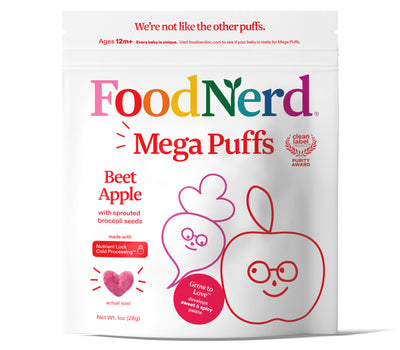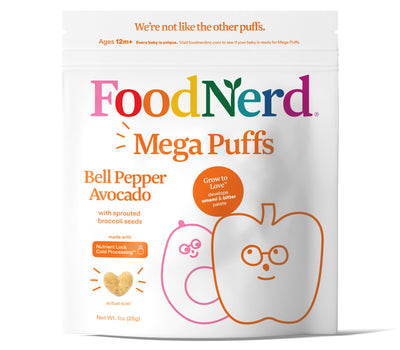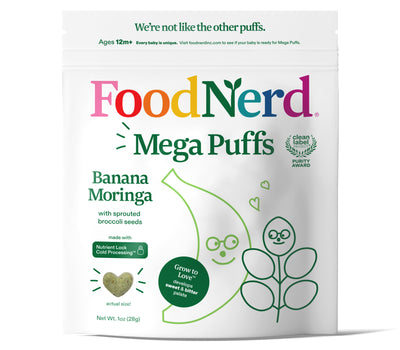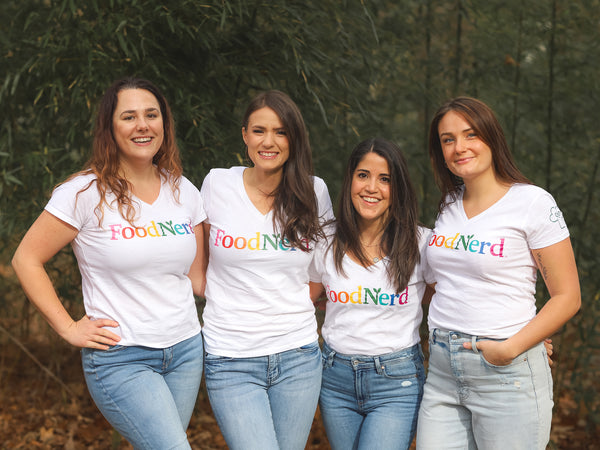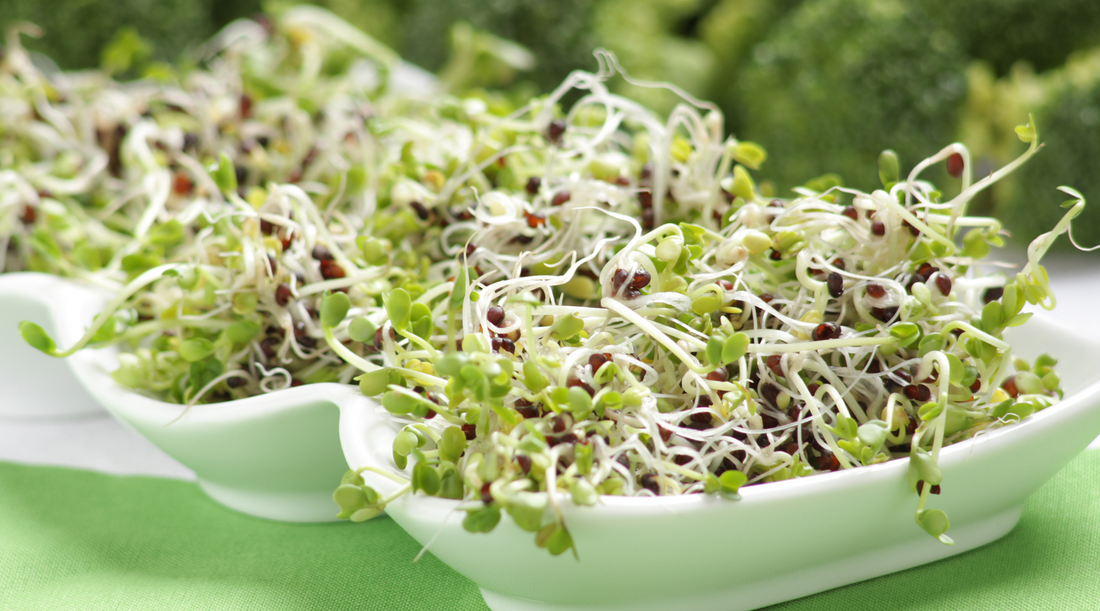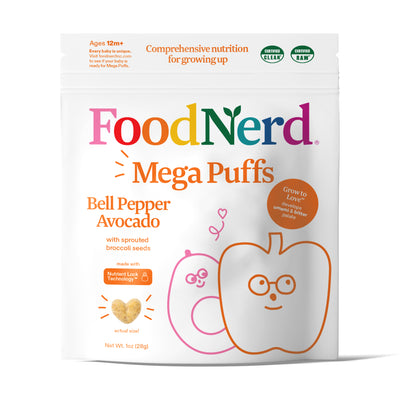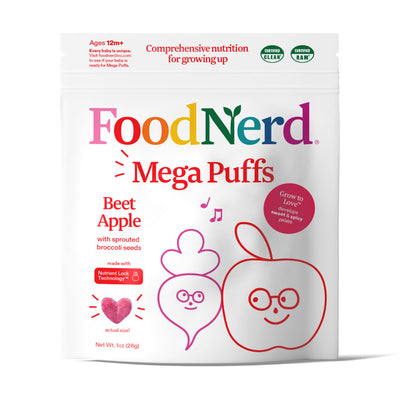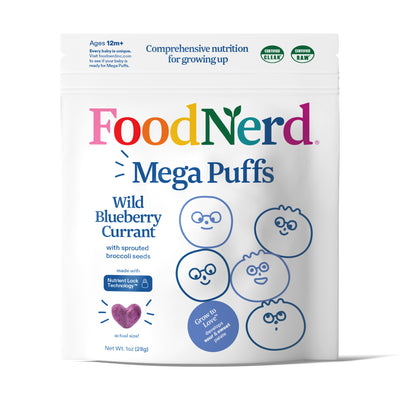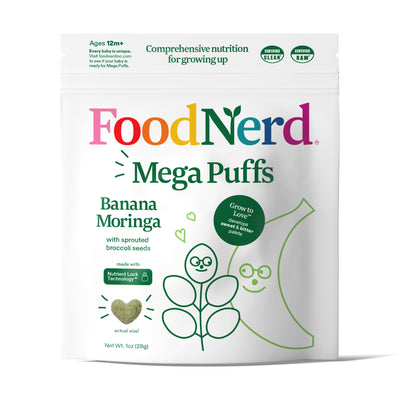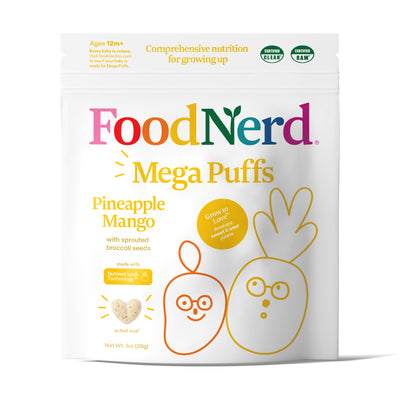Sprouts...
It's quickly becoming a buzz word in the health community, but eating sprouts has been around for centuries! In fact, Chinese sailors would grow bean sprouts at sea to keep scurvy at bay! Here at FoodNerd we have taken a liking to a particular kind of sprout:
Broccoli Sprouts
Here's an overview of broccoli sprouts and why we love them so much!
What Are Broccoli Sprouts?
Broccoli sprouts are broccoli seeds that have been sprouted. You sprout it by putting it in a container with water, letting it soak for a day, and then draining and rinsing the sprouts over a period of days. We sprout our seeds at the three-day mark, as this is when they are at their nutritional peak!

Research & Development: Our founder Sharon with our three-day-old sprouts
Where do broccoli sprouts come from?
When growing broccoli, first comes the sprout, then the broccoli we know and love, then the beautiful yellow flower, and finally the seed pods! These seedpods can take a while to show up, but they hold the holy grail: Broccoli Seeds. They are harvested when they are dry on the plant.
What do they taste like?
Broccoli sprouts are crunchy, and a bit peppery! They're delicious to have in a salad, on top of some avocado toast, and can be disguised in a smoothie.
Why have they been researched so much?
While broccoli sprouts are incredibly nutrient rich, they are mostly studied for their incredible sulforaphane content.
Sulforaphane is created by some plants to keep bugs away! It has a spicy taste, and may be toxic to these small organisms. But in humans? It seems it has a hormetic effect ( toxin that has a beneficial effect in low doses ). Our cells see this compound, and in response it opens up many advantageous pathways! What is a low dose? Studies are done with the broccoli sprout equivalent of 1 Tablespoon - 1 1/2 cup per day in mice. No upper limit is known in humans at this time.
What is sulforaphane?
Sulforaphane (SFN) is a compound made when you chew cruciferous vegetables such as (but not limited to) broccoli, cabbage, kale, cauliflower, brussel sprouts, and bok choy.
These are all great, but the best source of SFN is definitely, you guessed it, broccoli sprouts. They contain up to 100x more sulforaphane potential than broccoli.
How is sulforaphane made?
When you chew, blend, cut, etc. a source of SFN (lets say, broccoli) you break those cell walls. Those cell walls contain glucoraphanin (a precursor to SFN) and myrosinase (an enzyme). To put it simply, when glucoraphanin and myrosinase meet, they create Sulforaphane!

Important note: If you heat a source of SFN, you will kill the myrosinase and SFN will fail to form!
Why should I care about this?
Well for one, this isn't your crazy aunt Lorraine telling you healthy "facts" at the family reunion. John Hopkins University (one of the most prestigious biomedical research schools in the US) is the primary leader in research surrounding SFN, and particularly broccoli sprouts as a main source of said compound.
Sulforaphane "...has been shown to:
- prevent and combat cancer
- lower cholesterol
- improve diabetes
- support the immune system
- have antiviral, antibacterial, and antifungal properties
- combat inflammation
- protect skin, eyes, kidneys, and brain
- restore cognitive function..."
in a range of animals, in vivo (test tube) and some clinical (human) studies.
Don't expect doctors to start prescribing broccoli sprouts anytime soon- more clinical trials are needed to fully grasp the wonder of the super compound before we can officially start making any real exciting claims! In the meantime though, we are enjoying watching the number of studies on SFN and broccoli sprouts grow!
Broccoli Sprouts Nutrition: What is IN broccoli sprouts?
1 cup (91 G) of broccoli sprouts contain:
- Protein: 4.6
- Carbohydrates: 6.2 G (3.6 Fiber) = 2.6 Net
- Sulforaphane: 227.5 mg- although amounts can differ depending on a multitude of factors, including the process of sprouting, and type of seed used.
- Vitamin A: Vitamin A (in its plant based form) is an incredible antioxidant, great for the eyes, regulation of hormones, and growth of teeth and bones.
- Vitamin C: A well known antioxidant, it’s also lesser known for helping our body burn fat for energy, as well as its role in building collagen. It can also help your body absorb more iron. So next time you have a spinach salad, add some sprouts!
- Vitamin E: Protects our cells from free radical damage.
- Vitamin K: Important for bone health and pivotal for blood to clot!
- Selenium: Builds powerful antioxidant enzymes known as selenoproteins, which have multiple functions. One of those functions play a role in regulating thyroid functions.
- Sulforaphane may help people living with autism (1, 2,3) combating/preventing cancer (1,2,3), detoxifying body of carcinogens from air pollution(1, summary), and more!
Where can I get broccoli sprouts?
Many health food shops and even larger grocery stores carry sprouts. You can find broccoli sprouts in our Broccoli Sprout Powder, and our Mega Puffs.
You are also welcome to try sprouting at home, but make sure to follow safety precautions to a T! Keep a clean counter space, wear gloves/wash hands when handling seeds, use the best quality water you can get, etc!
How can I add broccoli sprouts into my daily routine besides in a salad?
Berry Sproutin' Smoothie:
- 1 frozen banana
- 1/2 cup frozen broccoli sprouts
- 2 cups greens (spinach, kale, chard)
- 1 cup berries (blue, rasp, black, strawberry)
- 1-2 cup(s) non-dairy mylk
- ice
- dash of maple syrup for extra sweetness if desired
- note that the longer you let this set after blending, the spicier it will get, due to the sulforaphane developing!
Sproutin' Avo Smash Toast:
- 2 slices whole wheat toast
- 1/2 avocado (mashed)
- 4 slices tomato
- 1/2 cup fresh broccoli sprouts
- squeeze of a lemon
Everyday at FoodNerd we are innovating new ways to use this ingredient in almost everything we create. Its our goal to make superfoods more convenient whilst treating them with the utmost care so they maintain a majority of their benefits! If you’re looking for ways to implement broccoli sprouts health benefits into your everyday life, you can find broccoli sprouts in our Broccoli Sprout Powder, and our Mega Puffs.
Discover "Different Types of Sprouts to Add To Your Diet"
Want to learn more?
- A conversation with Jed Fahey and Rhonda Patrick
- Search for peer reviewed articles here
